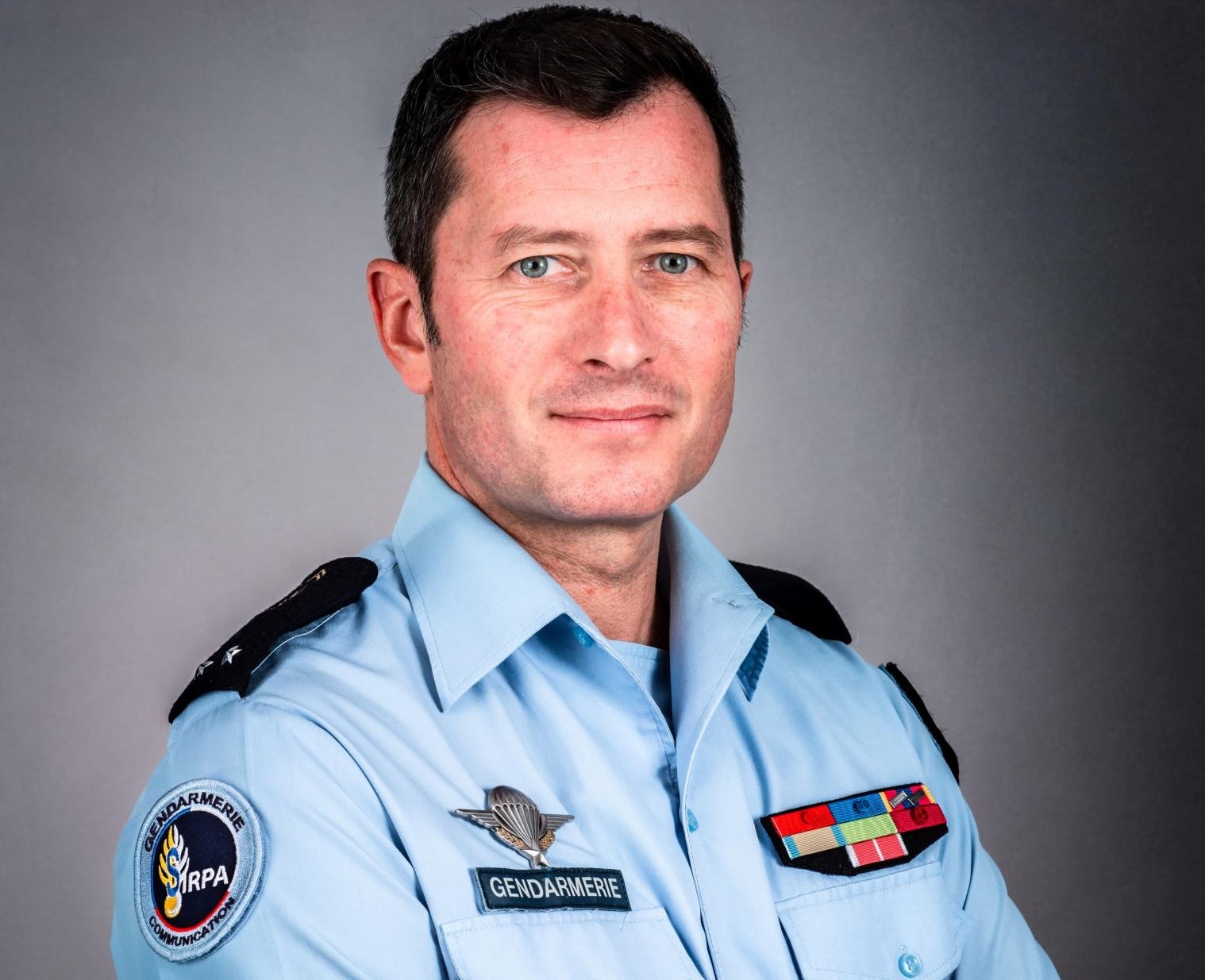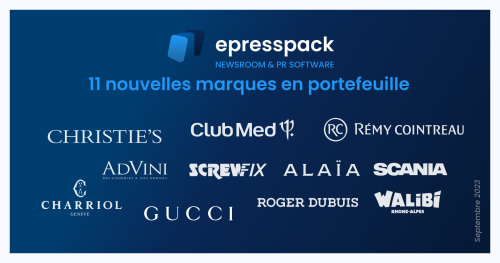"It's always difficult to respond to emotion with a rational explanation."

At the head of the Information and Public Relations Service of the Army-Police (SIRPA), Laurent Bitouzet leads a team of 60 employees, that initiates and implements the operational and corporate communication strategies and actions of the Army-Police or the Gendarmerie. SIRPA also coordinates the 50 communications officers spread across the country and advises the General Director. Having spent his entire career in the service of the National Gendarmerie, Laurent Bitouzet was notably appointed as Advisor to the police prefect of Bouches du Rhône and as Commander of the Gendarmerie du Var. He also served as Military Commander of the Hôtel Matignon to the Prime Minister between 2001 and 2004.
1 / After the terrorist attacks, the yellow vests, the strikes, and now a pandemic. The National Gendarmerie has been under severe strain since 2015. How are you?
I'm very well thank you! It’s true that the crises have been one after the other. Before, they were circumscribed and limited in time as was the case for Hurricane IRMA in Saint Martin or Notre-Dame-des-Landes. Since the yellow vests, it's been going on everywhere in France and for a long time. Eight months non-stop for these social protests, 2 months full for strikes and now the Covid-19 for 7 weeks… and it's not over. The crises follow one another, yet, they are all different and require to question oneself each time. The calm weather seems to be a thing of the past and I have to impose a resting rhythm on my teams.
2 / Confinement compliance between pedagogy and controls, scams of all kinds, domestic violence, watch on closed shops ... The service has a large responsibility. What has been the role of communications for the past 7 weeks?
For a company like the Gendarmerie that never stops, the Covid-19 is a very crucial moment for communications and it will remain so during deconfinement and beyond because we must remain available to protect the population. Our whole communications challenge is to explain the continuity of public service, to show that the Gendarmerie ensures compliance with confinement but that it always welcomes citizens and that it carries out proximity actions with the most vulnerable populations... To show the continuity of the public service is to explain with pedagogy how it happens on the ground. This is the reason why the number of reports has blown up in recent weeks to reach up to 400 topics in the media, whether on radio, TV or in the national press. This is without counting the reports broadcast at the local level in all the departments. Moreover, there are all our initiatives for social networks and the web, which have taken a prominent role. For example, we have just launched the national operation #repondrepresent which values the social initiatives we are carrying out, such as bringing meals to isolated seniors, strengthening our interventions in family disputes, or protecting businesses from cyber-attacks. We've also organized Facebook Live streamings in departments, in connection with doctors or associations, so that people can talk about their difficulties and ask questions of proximity.
3 / What about internal communication, is it more strategic during this crisis than the previous ones?
As for businesses, the internal communication of our institution was a major axis because we had to preserve the cohesion of the teams. It helped that the Gendarmerie is highly equipped with smartphones. They had access to the internet, with all the operational and health directives to help the service in the field. We also launched a gendarmerie-led YouTube channel to break the isolation and connect the brigades. We find on GendLife TV fun content, cooking lessons, sports, testimonials of service ... so many videos posted by the gendarmes themselves.
4 / The French do not always see the coherence or the logic behind the decisions of the government, in which they do not trust. The rules and sanctions have changed many times and the outlook is still as confusing. This shouldn't facilitate your communication strategy, right?
5 / Were the media outlets rather allies or were they more critical than usual?
Unlike the episode yellow jackets where social networks have been particularly active, this crisis has changed our dynamic with the media and local QPR. They are generally very receptive. They see that we are developing positivity with our support systems and the maintenance of social cohesion. And then we also show them how we use public money. We could cite for example the digital brigade, the aid to the collection of blood donation, or the installation of our DNA analysis laboratory at Garches hospital to conduct screening tests for COVID-19.
6 / The National Gendarmerie is at the head of a total digital audience of nearly 4 million people. Have you noticed an increase in traffic on your networks? Do you plan to invest in others like Snapchat or TikTok?
Keeping in touch with the population means also being present in the digital space. All crises affect the use of information channels, but what interests me most is the quality of the engagements, which have multiplied by 4 or 5 and tackling the right topics. It is true that with our combined 4 million fans and followers, we could consider the National Gendarmerie as a media brand and SIRPA as a full-fledged communications agency. We invested in Facebook in 2012 and since then we have always been part of an innovation process in start-up mode. We try and see how it works. We did the same for twitter & Instagram, always to show what the police are. Snapchat, we thought about it, we tried but we did not see the usefulness for our institution which is still focused on information. Degitalization is interesting because it often solves both convergent internal and external communication issues, even if it requires a lot of time, staff and content creation.
7 / let's talk about content, what importance does it have for you?
Pedagogy is a firewall against fake news and content is clearly the sinews of war, especially since we do not invest in any advertising campaign. The crisis has forced us to create new formats, such as "Life Scenes" for our magazine GendInfo.fr. We see gendarmes filming themselves with their phones to explain their actions on the ground and we encourage journalists to go see our media to shed light on the subjects. In normal times, we even push content with production companies that are used to produce documentaries for TV and TNT channels, like the next Xavier Beauvois film with which we are collaborating.
8 / The day of a #CONFINEDCOMDIRECTOR for the GN must seem endless. Perhaps you are not even confined ... Can you tell us about the typical in your shoes nowadays?
9 / What are the lessons you draw from this extraordinary crisis?
In a crisis of this magnitude, a public service like ours has every interest in being an information provider and a multi-media medium. It must also know how to remain rational and serene in front of a multitude of information every day. But what strikes me most of all is that the common intelligence remains dominant. The negative reactions that our content sometimes receives, must be compared to the thousands of likes, retweets, and media spin-offs. And that must not be forgotten. And then I have a few questions. There is information like that which we produce, which will never cross the barriers of very closed circles. How can we reach these groups and deploy specific means to reach them?
About La Gendarmerie Nationale
Digital audience of the Gendarmerie Nationale (April 2020):
- 18,000 YouTube subscribers
- 470,000 follower on twitter @Gendarmerie
- 14,500 followers on twitter of spokesperson @PorteparoleGN
- 38,000 LinkedIN subscribers
- + 800,000 FB fans @gendarmerienationale
- + 150 FB accounts (1 per department)
- 145,000 followers on Instagram
- The news media Gendinfo.fr






